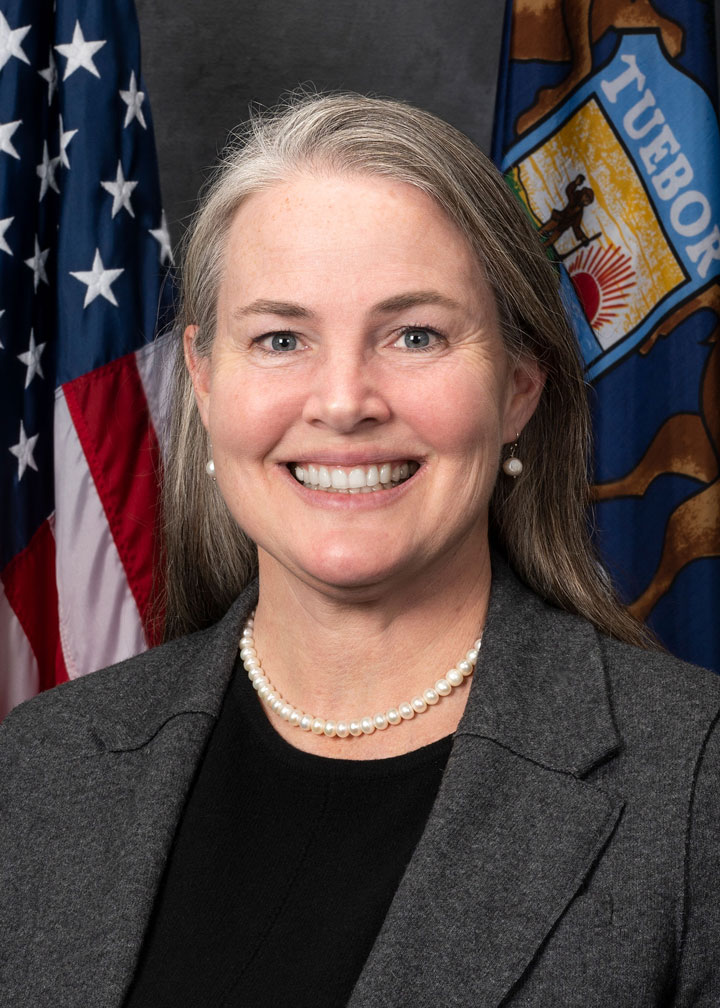
Michigan House of Representatives
Rep. Dylan Wegela, D-Garden CityBy LIZ NASS
Capital News Service
LANSING — The Michigan House is looking towards possible unionization of its staff, creating buzz on what a union could look like in the Capitol.
A photo of the voting cards, used as a tally of how many staffers want to form a union, is stirring speculation that unionization is on the horizon. It appeared in a tweet from the Michigan Information and Research Service, a public affairs-focused newsletter.
Amber McCann, the press secretary to Speaker Joe Tate, D-Detroit, said in a statement that the House leadership is aware of a move by some staffers to unionize.
John Beck, an associate professor in the School of Human Resources and Labor Relations at Michigan State University, said it is “fairly rare” to see legislative aides unionizing.
“People do not normally take unionization lightly,” Beck said. “That is because it’s a departure from their regular life. They have to assume that a unionized workplace is better than what they currently have.”
State legislatures have a mixed history when it comes to unionizing in the last decade, according to news reports.
Oregon was the first state to allow legislative staff to unionize in 2021. After five tries, California legislative staffers finally received recognition as a union, but are awaiting the governor‘s approval of the union.
According to Cal Matters, California staffers may have to wait until 2026 for that approval.
While New York Senate staffers launched an effort last year that’s continuing, Washington, Massachusetts, Minnesota and New Hampshire staffers all made unsuccessful unionization efforts recently.
Beck said to get a successful vote, the numbers are simple: 50% of House staffers plus one.
But the sentiment behind the movement is really the motivating factor, he said.
Historically, the three major reasons for creating a successful union are greater benefits or wages, protecting employees’ ability to work and protecting workers’ rights through language in their collective bargaining contracts, he said.
Beck said that he believes the proposed union is looking to protect its members in the face of the 2024 election because they’re concerned about keeping their jobs if their bosses – state representatives – aren’t reelected.
“It might be motivated by fear that the Legislature would go the other way,” he said, referring to a shift from Democratic to Republican control, “and that they’re protecting themselves through unionization against any adverse actions in the future.”
Rep. Dylan Wegela, D-Garden City, a member of the House Labor Committee, said that one main issue he believes unionization would address is salaried positions that have a high turnover rate.
“Staffers are paid drastically differently from office to office,” Wegela said. “I think there’s a lot of potential to move into a scheduled salary system for staffers that keep them here longer, and as a result, people in Michigan get better policy.”
He said he believes the unionization effort is long overdue and is glad that staffers are doing it now.
Wegela said he’s encouraged his staff to sign cards in support of the movement.
Rep. Tom Kunse, R-Clare, another member of the Labor Committee, said he heard about the drive through the news media rather than around the House.
Kunse said if people feel they want to join a union, he supports their right and is “glad they have that right.”
Kunse also said joining should be an individual decision.
“If you want to join a union, you should be able to do so,” Kunse said. “If you don’t want to join a union. I don’t think you should have to do so to keep your job.”
Kunse cited his support for a 2018 U.S. Supreme Court ruling that restored the rights of public sector employees across the country to choose whether to be in a union.
That ruling runs opposite Michigan’s recent repeal of the state’s right-to-work laws. The repeal allows unionized workplaces to resume requirements that employees must pay dues or agency fees for representation.
However, Beck said the Supreme Court ruling is “meaningless” because it wouldn’t allow staffers to exempt themselves from decisions made during union negotiations.
“They would be covered by the same collective bargaining agreement, and any bargaining outcomes bargain for the entire unit,” Beck said. “The only difference is that they could decide not to pay dues.”
Another issue is whether the House would formally recognize a staff union, according to Beck. Such recognition would have to come from House leadership.
Kunse said he believes Tate will recognize the union because House Democrats “have done whatever the unions have told them to do” and are “beholden” to unions that contribute to their campaigns.
Sen. Sue Shink, D-Northfield Township., said she could see state Senate staff look towards unionization in the future as well if “they see that the House staffers are having a good experience with it.”
However, Shink said she believes the decision lies wholly with what staffers think is best for themselves.
“It’s really not my place to tell them what I think of staffers unionizing or not,” Shink said. “That is 100% their decision.”
Wegela said, “All workplaces should reflect that the input of our staff should be listened to and thought about and taken seriously because, at the end of the day, nothing really moves without them.”

Michigan Senate
Sen. Sue Shink, D-Northfield Township
Michigan House of Representatives
Rep. Tom Kunse, R-Clare